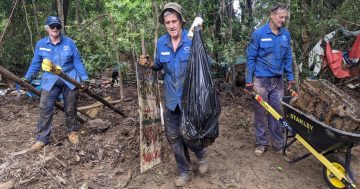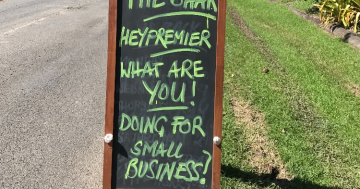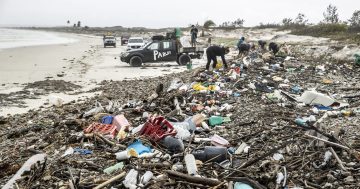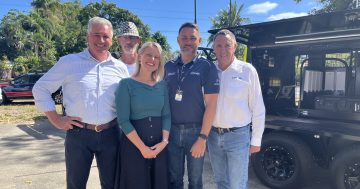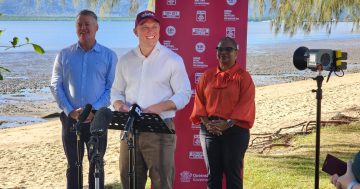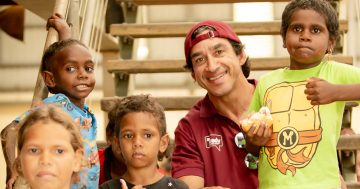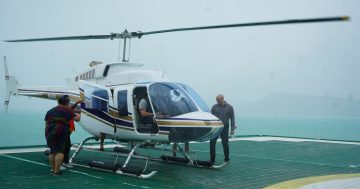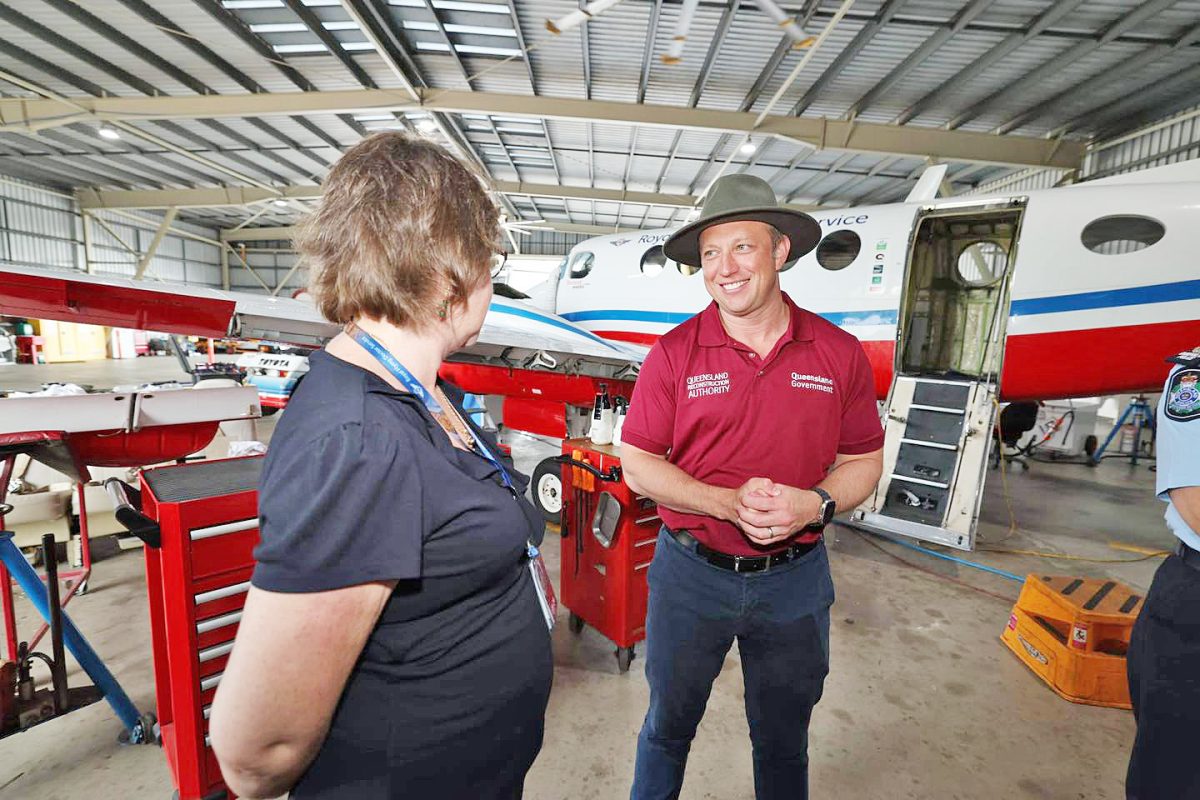
Steven Miles has had to deal with two major disasters in his short stint as Queensland Premier.
If Steven Miles wants to lead the Labor Party to another election win in October, his election motto should be: “Queenslanders first”.
Because from what we’ve seen across our large state in the last couple of weeks, Queenslanders are left to fend for themselves when disaster strikes.
From the flooding disaster in the Far North, to the “cyclone-like” storms that shredded the Gold Coast, Queenslanders were left unprepared.
Our full-time emergency services appear to be risk-averse, our volunteer SES base doesn’t have the capacity, and the federal government has proven on many occasions that it doesn’t like asking the Defence Force to intervene.
If it wasn’t for the can-do attitude of regular Australians in tinnies and helicopters, we’d be talking about much higher death tolls.
Personally, I still can’t shake the 3am phone call from Wujal Wujal people who were pleading for help as the water lapped their roofs. They were scared for their lives and no one was coming to their aid.
It wasn’t until the following day, more than 36 hours later, that the first Army helicopter arrived in Wujal.
I was safe and dry in Cairns, yet I still wake up in the night with “what if” thoughts. I can only imagine what it must be like for those people who had to live through the experience.
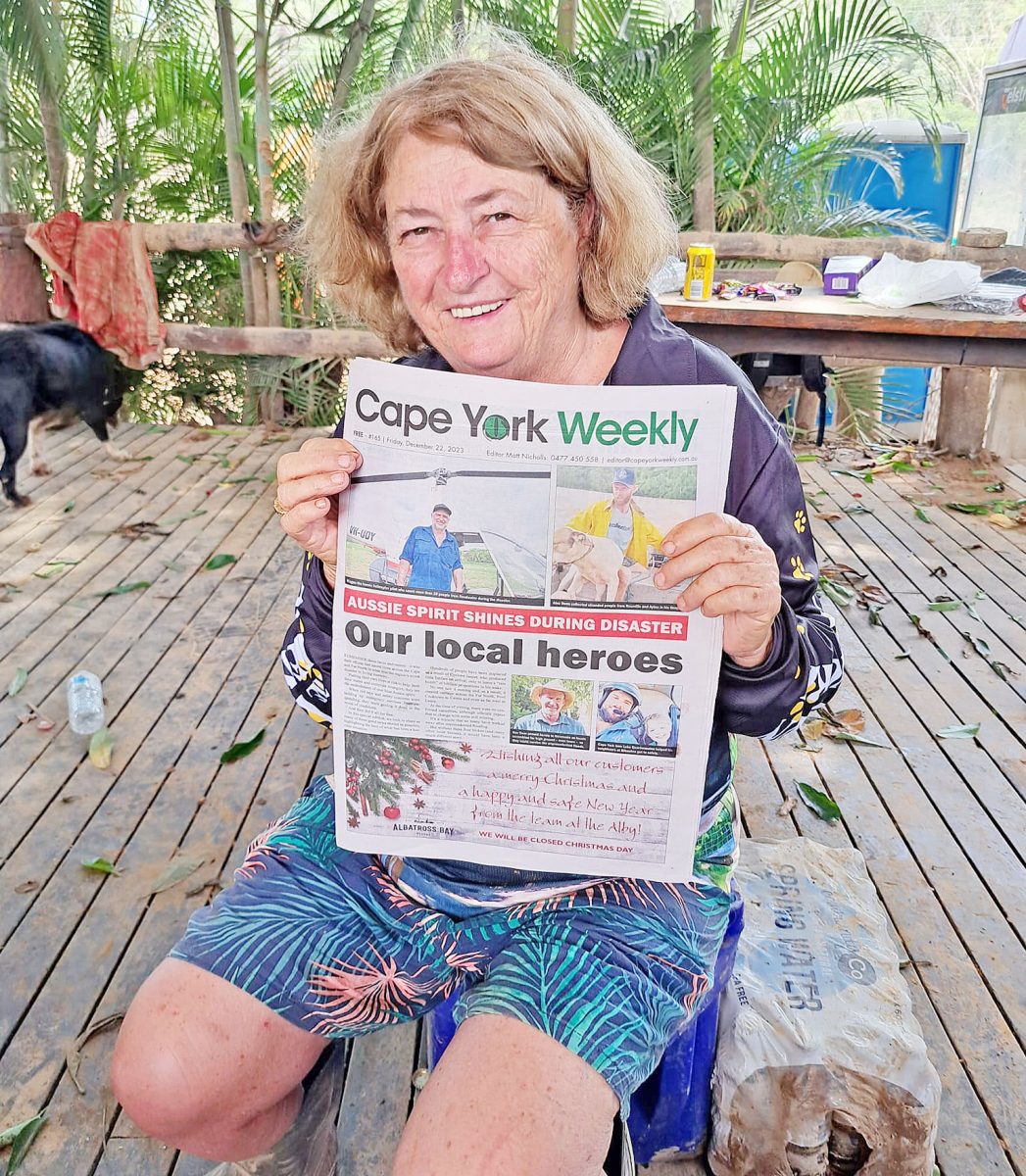
Judy Fry from the Lion’s Den Hotel is grateful to the locals who came to the rescue and to those who are helping clean up the historic pub.
At the Lion’s Den Hotel last week, I remember telling Judy the publican that it might get harder before it gets easier.
“Sadly, the rest of Australia will forget about you in a week and they’ll be talking about the next disaster,” I said.
And no, I’m not a prophet. Just an experienced newsman who understands how the media and society work.
I certainly didn’t wish this Christmas disaster upon the Gold Coast.
This morning, I’m reading stories in the Courier Mail of people who can’t get help from emergency services. Instead, it’s locals on the Gold Coast who are out there with chainsaws and trailers, clearing the mess.
The Queensland government is supposedly bringing in support from interstate to help the clean-up in the south-east, but where is the help in the Far North?
The “mud army” volunteer group has done wonders out of Cairns, helping those on the northern beaches to clean up their properties.
As anyone who has been through a flood will tell you, the first few days are critical in the clean-up. After that, the mud hardens, smells and is almost impossible to clean.
So what do we tell the people of Ayton and Bloomfield who are still cut off from the rest of the world by road? How about the people of Degarra and Cape Tribulation?
When do they get help cleaning up? For many, it’s too late.
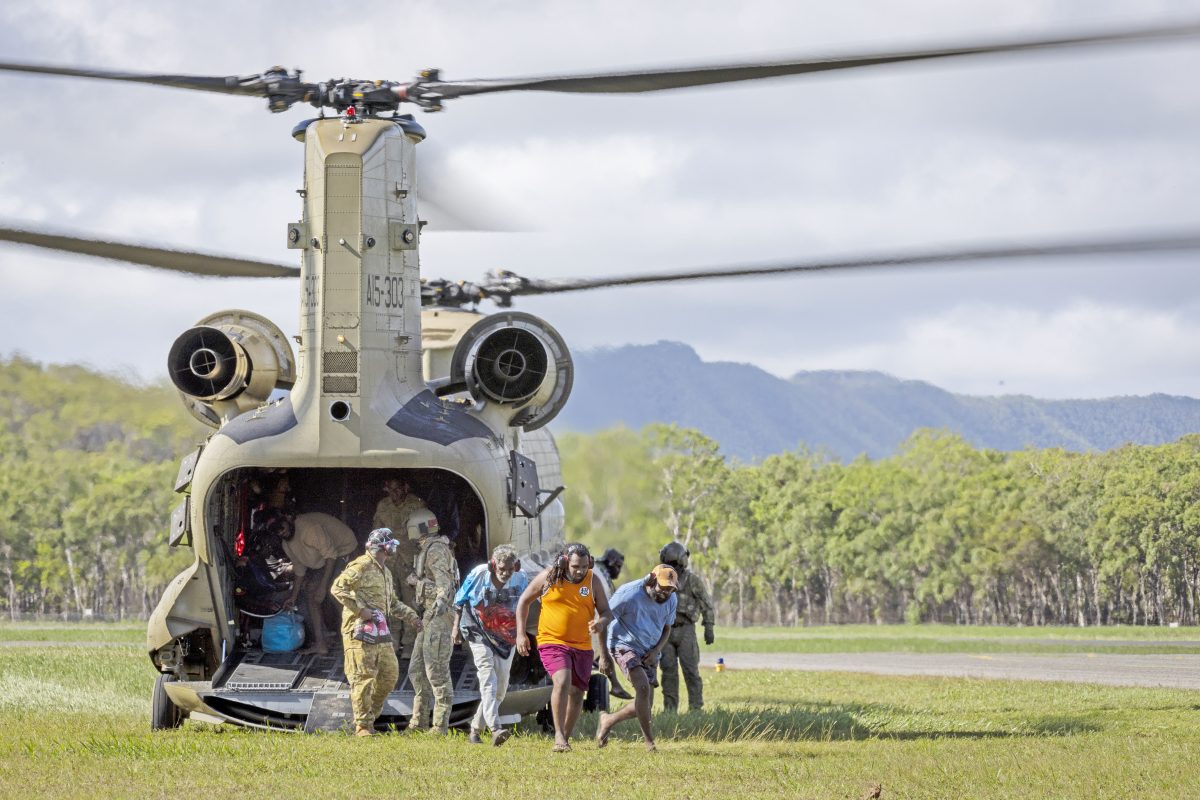
Wujal Wujal residents have been evacuated from the community to Cooktown.
Premier Miles and Prime Minister Anthony Albanese, as well as federal Opposition Leader Peter Dutton, have all made appearances in the Far North since the flooding.
Their message has been united: Keep coming to the Far North and supporting the local businesses.
But none have ventured to the southern Cape or into Mossman or the Daintree.
As Douglas Shire mayor Michael Kerr put it to Cape York Weekly: “We’ve got people and businesses going broke because of this. They can’t work and they aren’t getting any kind of government support. The $180 from the state government is a joke, and to get the $1000 from the federal government you needed to have $20,000 of damage to your property.”
Cr Kerr is spot on. In previous years, when bushfires have ripped through Victoria, the federal government has offered $1000 to impacted residents simply because they lost access to their property during the disaster.
The threshold for funding in the Far North is too severe.
“Many people have been coming to me, telling me that they were knocked back (for the funding),” Cr Kerr said.
The councils most impacted by the disasters in the Far North need to be listened to.
Cook Shire, Wujal Wujal Aboriginal Shire, Douglas Shire and Cairns Regional Council have led the disaster response on the ground.
It was the local leadership that got water treatment plants up and running, bush tracks pushed through and goods helicoptered into remote residents.
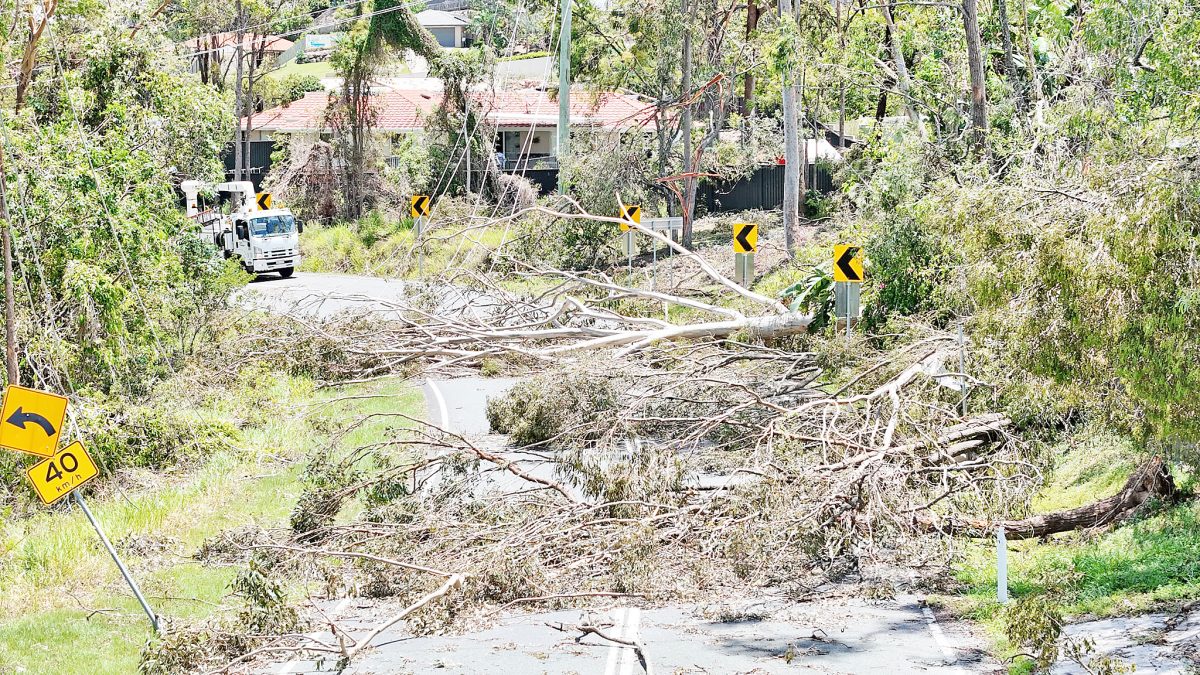
The Gold Coast was smashed by major storms, which claimed the lives of 10 people.
The fact it took more than 36 hours from the time Wujal Wujal called Triple-Zero from their roofs to the Army turning up says that Queensland just wasn’t prepared for this.
And that’s not good enough.
So what can Mr Miles do between now and October to ensure that his government is putting Queenslanders first?
- Commit to rebuilding Wujal Wujal, which includes a local evacuation centre.
- Get more money back in the hands of local councils and local people. It was these people who got the job done when disaster struck, not the state’s paid emergency services.
- Remove the red tape for volunteer brigades, such as Rural Fire, SES, and Volunteer Marine Rescue. Why do you need a blue card to rescue someone from their roof?
- Install the world’s best warning systems in communities. While we hope to never see flooding of this magnitude again, we need to be prepared if history repeats.
- Call for the Bureau of Meteorology to put more people back into the regions. The BoM has failed Queenslanders in the past fortnight. Local knowledge can be life-saving.
- Push for an arm of the Australian Defence Force that works directly with disasters. If QFES isn’t keen on going in when needed, find a unit that will.
- Work with the federal government to fix the insurance farce in Australia. Too many victims of the flooding had no insurance because of the obscene costs.
- Consider scrapping the Olympics in 2032. How can Queensland afford the cost of building all of this infrastructure when it can’t look after its own people?
Finally, it might be time for a change in representatives in two critical Labor seats.
Craig Crawford, the Member for Barron River who had just been sacked as a minister by Miles before the flooding, jumped on a plane the day after the Cairns Airport opened and left the Far North. Did he learn nothing from the public persecution of Scott Morrison?
And then there is the Member for Cook Cynthia Lui, who didn’t manage to get up to the flood-impacted communities in the southern Cape until after Christmas. Although Ms Lui hasn’t lived in the electorate since being sworn in, so she might not have received a warm welcome in places like Mossman, Daintree, Wujal Wujal and Rossville.
Credit must be given to Michael Healy, who has been the face of the state government in the Far North in this disaster. The newly-minted Tourism Minister is going to have a tough 10 months ahead, but he’s shown leadership when his colleagues have floundered.
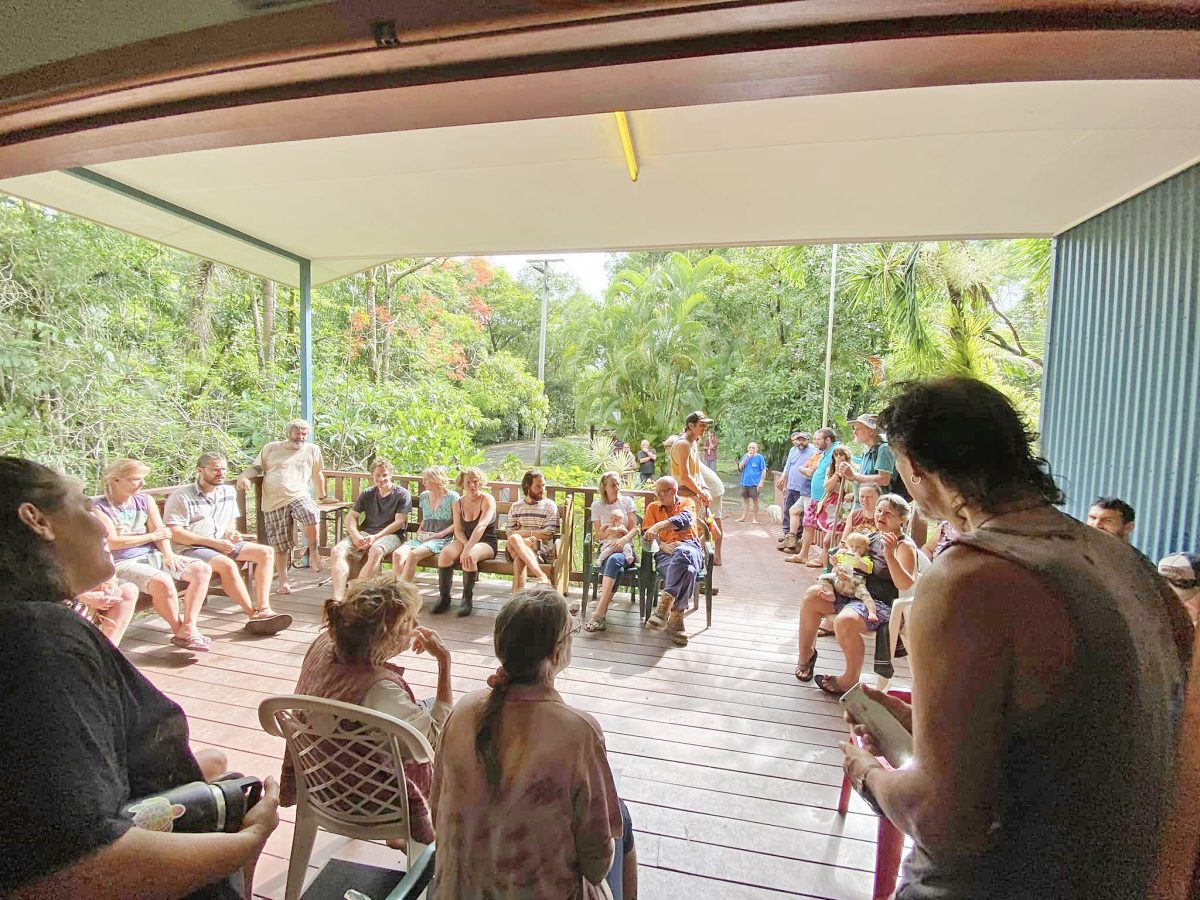
The people of Rossville have shown a can-do attitude which should be adopted by our state government.
And while politics should be pushed to one side in an emergency, Queenslanders have the right to demand better of their politicians and political parties.
With 10 months to go until the next state election, the timing couldn’t be better if you are a Queensland resident.
How this government responds to these disasters, and what alternatives the Opposition dishes up, will create accountability in the Sunshine State.
And accountability is what we need.


